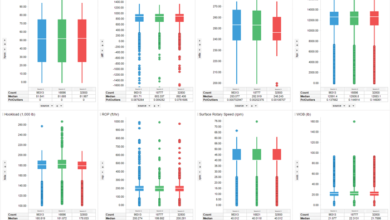Wirelines
US House hosts onshore act hearing
On 13 October, the US House Subcommittee on Energy and Mineral Resources hosted a hearing to discuss the draft of the ONSHORE Act, which would enable states with established permitting and regulatory programs to seek responsibilities for oil and gas development on federal lands within their borders. IADC President Jason McFarland issued a public statement of support for the act: “Handing permit oversight over to the states helps to avoid costly duplicative regulation, allowing quicker access to the natural resources that power the US and mean so much to every person in the nation. Currently, the BLM processes these applications in 250-plus days. Conversely, states are able to issue permits within 30-45 days. These delays are costly and detrimental to an industry that contributes a significant amount of revenue and jobs to the US economy. IADC is supportive of the ultimate goal of this legislation to ensure efficient and timely approval of permits and continued US energy independence.”
US house passes interior appropriations bill that advances US energy production
In September, the US House of Representatives passed the Interior Appropriations bill, authorizing funding for key programs for fiscal year 2018. In a statement, IADC President Jason McFarland said, “IADC and its members are supportive of the House’s efforts to pass an Interior Appropriations bill that advances US energy production, both onshore and offshore. The passage of amendments that prohibit the funding of costly and duplicative rules, including the EPA’s methane rule and BLM’s venting and flaring rule, further indicate the House’s desire to support an industry that contributes billions of dollars to the US economy and helps keep lights on in our homes and fuel our vehicles. Likewise, the House’s vote to defeat an amendment that would restrict funding to prepare a new OCS leasing program and an amendment to restrict oil and gas development and exploration along the US Atlantic coast points to an interest by this nation’s elected officials to further invest in US energy development. We thank those members of Congress who proposed amendments in support of the US energy industry.”
IADC participates in Canada-US energy services association meeting
In August, IADC participated in the Canada-US Energy Services Association meeting, held in Washington, DC. Organized by the Petroleum Services Association of Canada and attended by the Canadian Association of Oilwell Drilling Contractors, the meeting offered an opportunity for attendees to discuss the North American Free Trade Agreement (NAFTA) and possible changes to that agreement that could impact the energy industry in both countries.
Liz Craddock, IADC Vice President, Policy and Government Affairs, attended the meeting on behalf of IADC. At the conclusion of the daylong gathering, she said, “The meeting was incredibly informative and timely, with a robust discussion by those in the room on the reality of what, if any, changes to NAFTA would invoke for our industry. It was also an opportunity for IADC to work closely with our sister trade associations on an issue that is particularly timely.”
US court of appeals for the fifth circuit upholds district court decision in favor of Latshaw Drilling in warn act lawsuit
On 1 August, the US Fifth Circuit Court of Appeals ruled in favor of upholding the previous decision by a US District Court in Dallas on 31 May 2016 to dismiss action filed against Latshaw Drilling Co by a former employee. The plaintiff in the case was laid off when the contractor was forced to stack 29 rigs in Q1 2015 due to the downturn.
The plaintiff had alleged that Latshaw violated the Worker Adjustment and Retraining Notification (WARN) Act, which requires employers to give affected employees a 60-day written notice before a plant closing or mass layoff in single sites of employment with 50 or more employees. The district court agreed with Latshaw’s argument that each of its drilling rigs – which each hold an average crew size of 22 – comprises an individual site of employment and are, therefore, not subject to the WARN Act. After the case was dismissed, the plaintiff’s lawyers filed for an appeal, arguing that the company’s rigs in aggregate should be considered a single site of employment.
The ruling by the Fifth Circuit Court of Appeals is the first federal appeals court to make a decision of this kind in the US, according to Trent Latshaw, President of Latshaw Drilling. Several federal cases have been filed in Texas against oil industry companies by laid-off employees seeking severance pay under the WARN Act.
The Fifth Circuit Court of Appeals decided to publish the opinion, according to Mr Latshaw, so the name Latshaw Drilling would be associated with the ultimate controlling case law on this issue to reference for other oilfield service companies that are fighting this same lawsuit.
Fifth circuit court rules in favor of offshore contractors on liability under outer continental Shelf Lands Act
The US 5th Circuit Court of Appeals recently ruled against the government with regard to its attempt to exercise criminal enforcement powers against contractors and subcontractors.
The case stems from a fatal welding accident that occurred on an offshore oil platform in the Gulf of Mexico in November 2012. The government charged the owner and operator of the platform, Black Elk Energy, with criminal violations of the Outer Continental Shelf Lands Act (OCSLA) and the Clean Water Act and sought to impose criminal penalties under OCSLA against contractors working on the platform.
IADC President Jason McFarland weighed in with a statement: “This is not about safe and environmentally sound operations, to which our members and our industry are committed, but about due process. This ruling affirms that a regulatory agency cannot, through policy statement and without notice and comment rulemaking, abandon decades of administrative practice so as to criminalize the conduct of contractors, subcontractors and individuals broaching a rule that was never crafted to apply to them. As the administration’s regulatory reform efforts move forward, we are committed to working with the Department of Interior and its bureaus to produce regulations that ensure safe working conditions, are protective of the environment and are clear in their allocation of responsibility and liability.”




